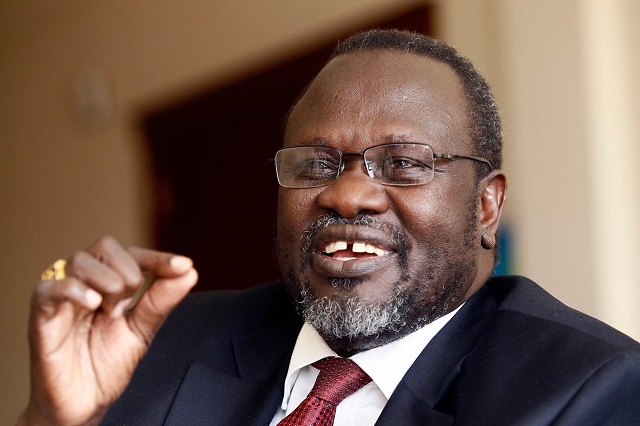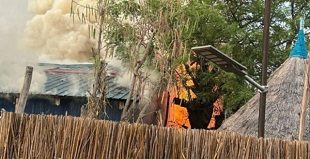
Juba, South Sudan | Xinhua | South Sudan’s main opposition, Sudan People’s Liberation Movement/Army-In-Opposition (SPLM/A-IO), has agreed to resume participation in the security mechanisms after recently opting out due to “unprovoked” attacks on its positions.
First Vice President Riek Machar, leader of the SPLM/A-IO, on March 22 announced announced his party’s withdrawal from meetings of the crucial security mechanisms, such as the strategic defense and security review (SDSR), the joint transitional security committee (JTSC), the joint military ceasefire commission (JMCC), and the joint defense board (JDB).
“The SPLM/SPLA-IO leadership hereby lifts the suspension of participation in SPLM/SPLA-IO in the meetings of security mechanisms, namely JDB, JTSC, JMCC, SDSR Board, CTSAMVM (Ceasefire Transitional Security Arrangement Monitoring Verification Mechanism), as well as the National Transitional Committee (NTC) and Reconstituted Joint Monitoring and Evaluation Commission (RJMEC), with immediate effect,” Machar said in a statement issued in Juba, the capital of South Sudan, on Sunday.
The decision followed a visit by Mohamed Hamdan Daqlu, deputy head of the Sudan Sovereign Council, who also held talks with President Salva Kiir and other signatories to the 2018 revitalized peace deal.
The parties also signed an agreement on the structure of a unified army command that will be in charge of the 83,000 unified forces once they are graduated.
“Today we signed the agreement on the structure of the army command in the unification and one week from now, all the forces who are in cantonment will begin the graduation of the first batch,” said Tut Gatluak Manime, Kiir’s advisor on security.
The SPLM/A-IO and the South Sudan People’s Defense Forces (SSPDF) clashed last week in the oil-rich regions of Upper Nile and Unity states, leading to fresh fears of the fragile peace deal collapsing.
The United Nations Mission in South Sudan, the African Union, and the Inter-Governmental Authority on Development (IGAD) that brokered the peace deal have recently met all the parties to push them back to the negotiating table.
The transitional period ends in February 2023, and afterward that the world’s youngest nation will hold its first national election.
*****
Xinhua
 The Independent Uganda: You get the Truth we Pay the Price
The Independent Uganda: You get the Truth we Pay the Price



